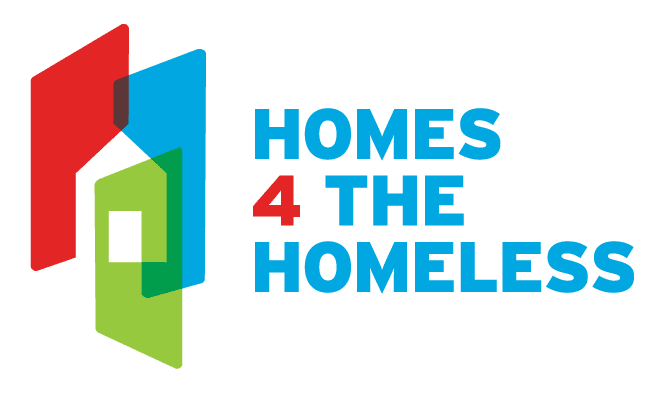Through Deceptive Policies Like Arizona’s Proposition 312, the Cicero Institute Pushes a National Agenda to Make Poverty a Crime—One Refund at a Time
“Why don’t you go cut some grass for $100?” shouts an angry Daytona Beach business owner.
His snide comment is directed at the homeless woman in the wheelchair across the street. She retorts, explaining that she’s not even in front of his store. According to the Channel 9 reporter covering the argument, this is a typical day in the popular tourist section of Florida, where homeless people and business owners continue to clash.
The dilemma is simple. The business owner does not want homeless people on his property. The homeless person has nowhere else to go. It appears to be a conflict, but it’s not.
In reality, the homeless person and the business owner could both find a resolution if people in positions of power created an environment that featured permanent housing for all. In that environment, the problem would be solved. The homeless person would have an individual space to call home. The business owner would not have homeless people outside his store.
Political Leaders Know the Only Cost-Effective and Successful Solution to Homelessness is Housing, Yet They Push Criminalization
Homelessness is all around us. Invisible People research shows the general public is waking up and taking notice. And while views surrounding the issue are conflicting, at times even polarizing, the consensus is clear. People want action and solutions.
What they are gradually learning is that encampment sweeps are not the solution. A Next City study recently revealed that they do nothing positive at all, and don’t even offer the communal benefit of making homelessness less visible.
In an interview with Invisible People, Jesse Rabinowitz, Campaign and Communications Director of the National Homelessness Law Center, emphasized this point, drawing on his experience as an advocate.
“If politicians wanted to save taxpayer money, they would fund housing and support, not jails and more police,” Rabinowitz said. “Not only do anti-homeless laws make homelessness worse by destroying possessions, breaking trust, and displacing communities, but they are also incredibly expensive.”
He’s right.
Homeless encampment clearings typically cost cities hundreds of millions of taxpayer dollars—money diverted from proven, effective solutions. In the end, anti-homeless legislation fails both morally and financially.
Yet, despite the cost and evidence, powerful policy groups continue to push for these crackdowns nationwide. Chief among them is the Cicero Institute, which has spent countless hours drafting legislation that criminalizes everyday survival for unhoused people. The think tank depends on voters backing criminalization, even though studies show it doesn’t work—and now it’s resorting to outright bribery to make that happen.
Cicero Institute is Bribing Voters with The Prospect of Tax Refunds for Supporting Harsh, Criminal Policies against Homeless People
The Cicero Institute has already pushed deceptively worded anti-homeless laws through the legislative process by quietly sneaking them into other housing bills at the last minute or misrepresenting their effectiveness. Now, they admit they have introduced a new tactic.
In their own words, the tax refunds would be used to “strongly incentivize cities and counties” to aggressively enforce laws that make it a crime for unsheltered individuals to do all of the following activities in public:
- Stand up
- Sit down
- Rest
- Sleep
- Walk
- Store personal belongings and more
The Cicero Institute claims cities that do not enforce these laws should face harsh penalties. In Arizona, taxpayers are told they could receive a refund if their city leaders fail to arrest people for engaging in life-sustaining activities outside under a 2024 referendum, known as Proposition 312.
The Cicero Institute envisions a dystopian world where this is true everywhere, a world where these abhorrent laws exist under the threat of harsh punishment for those who fail to enforce them. This coincides with the latest sentiment of criminalizing people who ally with the homeless population, such as:
- Social workers
- Advocates
- Street medicine administrators
- First responders
It is a ploy for oppression against the powerless, and whatever tax refunds are involved, they will never add up to the hundreds of millions of tax dollars wasted on homeless encampment sweeps.
“The solution to homelessness is housing and support,” Rabinowitz reiterated. “People sleep outside because the rent is too damn high. Instead of promoting wasteful, anti-homeless laws, the Cicero Institute should pressure its friends at the White House to make rent cheaper and help more people make ends meet.”
Tell Your Legislators Your Vote is Not For Sale
The Cicero Institute admits this is only the beginning, stating “this type of policy has a natural extension to non-enforcement of other types of laws, such as a failure to respond to calls for service for certain types of property crimes, such as vandalism, or public order crimes like trespassing.”
A recent Business Insider investigation revealed that landlords are almost never punished for breaking the law by conducting illegal lockouts and self-help evictions. These evictions are actual crimes, and they fuel the underlying homeless crisis.
Oddly, this institute and others like it seek to punish the non-enforcement of laws that make surviving homelessness a crime. Still, they never seek to punish the non-enforcement of laws that protect renters from becoming homeless.
Like corrupt landlords, the Cicero Institute operates openly. They’ve even entitled their latest publication “Incentivizing Abatement of Homeless Encampments with Property Tax Refunds”. It’s gotten to the point where they no longer feel the need to hide their true intentions behind smoke screens.
Tell your legislators to prioritize the general public’s interests over those of the billionaire class by making housing a constitutional human right.
